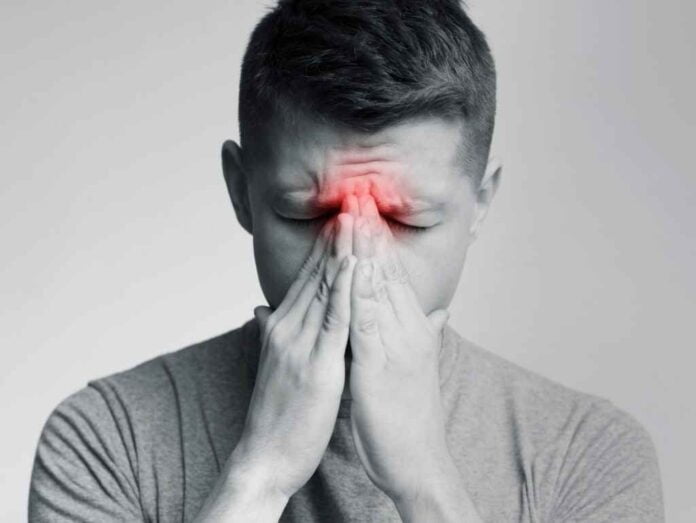Swimmer’s Sinusitis: A good way to relieve pain from viral sinus blockage is to take an acetaminophen or ibuprofen product. In addition, a cold pack or ice wrapped in a wet cloth can be used to reduce swelling and pain. Allergy medication such as a long-acting nasal decongestant may be used for breakthrough symptoms. Usually, this type of sinusitis goes away in 7 to 14 days.
Non-invasive sinusitis
Non-invasive sinusitis treatment is an alternative to surgery. The Ears, Nose, and Throat (ENT) doctor inserts a thin, flexible endoscope, which visualizes the sinuses. In severe cases, a rigid endoscope may be used. It helps the doctor to see if there is an underlying disease that is causing symptoms.
A doctor may prescribe antibiotics and give tips on how to treat Swimmer’s Sinusitis caused by bacteria. The length of the course of antibiotics will depend on the severity of the problem and the type of medicine used. A natural home remedy may also provide relief. When these measures don’t work, though, surgery may be an option.
Symptoms of sinusitis include pressure and pain in the face and teeth. A yellow or green discharge may also appear. Some people also experience a headache and difficulty with their sense of smell. Other symptoms may include fatigue, facial swelling, and a bad taste.
Non-invasive sinusitis treatment can address the underlying cause of sinusitis and provide relief in the short term. It can also help with long-term sinus infections. Because antibiotics target the bacteria responsible for the infection, they can be an effective way to contribute to the healing process. But antibiotics are not a permanent cure for sinusitis and can also carry a number of risks.
Non-invasive sinusitis treatment for swimmer’s sinusitis can also be an option if post-surgical surgery is not an option. This treatment is effective and may even be a better choice for swimmers or active individuals. It will also help patients maintain a healthy sleeping pattern.
Swimmer’s Sinusitis Treatments
Treatments for swimmer’s sinusitis can include using an ice pack or a cold compress to reduce the swelling and pain. A Nasal spray with saline solution is also an option. It thins mucus and moisturizes the nasal cavity. It is available over the counter or with a physician’s prescription.
While many sinus infections are short-term and not harmful, they can lead to more serious problems. In severe cases, the infection can lead to infections in the bones and tissue near the sinuses, as well as in the fluid around the brain. As the condition worsens, a person may develop bad breath.
One treatment that can ease symptoms is acupuncture. Acupuncture treats sinus problems by reducing inflammation of the sinuses. Acupuncturists use a variety of techniques to relieve symptoms. Some practitioners use needles while others use moxibustion. Moxibustion involves burning herbs such as mugwort over specific acupuncture points. A 2009 double-blind randomized controlled trial found that acupuncture significantly improved nasal airflow and decreased the symptoms of chronic sinusitis. The positive effects of acupuncture lasted for 30 minutes after treatment. Other practitioners suggest chiropractic care.
Aside from medication, there are also other preventative measures that a person can take to reduce the frequency and severity of sinus infections. Using a humidifier can make the air more humid and prevent the sinuses from drying out. The best way to treat sinus infections is to follow your doctor’s recommendations for lifestyle changes that will help your symptoms improve.
Prevention
Swimming pools are great for summer relief, but they can also irritate the sinuses and contribute to the onset of the swimmer’s sinusitis. These sinus infections are caused when the skin lining the sinuses swells, trapping mucus inside the sinus chambers. Bacteria then start growing in moist, dark environments. Symptoms of a swimmer’s sinusitis may include fatigue and insomnia. Fortunately, there are simple solutions for preventing and treating swimmer’s sinusitis.
Changing your lifestyle is a good way to prevent sinus infections. Lifestyle changes may include eating a balanced diet, getting plenty of rest, and reducing stress. In addition to changing your diet, making sure you stay well-hydrated is essential for sinus health. Increasing your physical activity and decreasing your stress levels can also help prevent sinus infections.
Before seeking treatment for swimmer’s sinusitis, clean your ear canal thoroughly. An ear curette or suction device can remove debris and return the sinuses to a healthy environment. Antibiotics and antifungal medications can fight off bacteria and fungus and reduce inflammation. You can also take over-the-counter pain relievers to reduce your discomfort. Avoid sticking foreign objects in your ear, as this can force debris deeper into the canal and even puncture the eardrum.
Prevention of the swimmer’s ear is important to your overall health. It is a painful infection that can be difficult to treat. By following the simple tips below, you can avoid the pain and discomfort associated with a swimmer’s ear and avoid it in the future.

